In Kenya, as in many other parts of the world, marginalized girls face several challenges that hinder their educational, personal, and professional growth. These challenges include limited access to quality education, early marriages, gender-based violence, and societal stereotypes.
However, there is a powerful tool that can help bridge the gap and empower these girls to reach their full potential: mentorship.
Mentorship can play a vital role in helping these girls overcome the challenges they face and achieve their full potential. This article explores the significance of mentorship for marginalized girls in Kenya.
What is Mentorship?
Mentorship is a relationship between a mentor, who has more experience and knowledge, and a mentee, who is seeking guidance and support.
Mentors can provide mentees with advice, encouragement, and a sounding board. They can also help mentees develop their skills and knowledge, and navigate the challenges they face.
Understanding the Challenges
Before delving into the impact of mentorship, it is essential to grasp the challenges that marginalized girls in Kenya encounter on a daily basis.
- Limited Access to Quality Education: According to to the World Bank, 43% of girls in Kenya do not attend primary school. This educational disadvantage sets them on a trajectory of limited opportunities and economic hardship.
- Early Marriages: The Girls Not Brides organization reports that in Kenya, 23% of girls are married before they turn 18. Early marriages not only disrupt their education but also expose them to health risks and violence.
- Gender-Based Violence: A UN Women report states that 22.8% of women and girls aged 15-49 in Kenya have experienced physical or sexual violence. Such violence often results from deeply rooted gender inequalities.
- Societal Stereotypes: Gender stereotypes in Kenya can hinder a girl’s ambition and self-confidence. These stereotypes can limit career choices and opportunities for personal growth.
- Female Genital Mutilation (FGM): FGM is a deeply entrenched cultural practice in some parts of Kenya and poses serious physical and psychological risks to girls. Girls who undergo this practice may experience anxiety, depression, and post-traumatic stress disorder, impacting their ability to pursue education and personal development.
- Poverty: Poverty is a significant barrier to education and personal development for marginalized girls in Kenya. According to the World Bank, approximately 36% of Kenya’s population lives below the national poverty line. Marginalized families struggle to provide their daughters with proper uniforms and essential school supplies.
The Importance of Mentorship for Marginalized Girls in Kenya
Mentorship programs provide a beacon of hope for marginalized girls in Kenya. Here’s why they are essential:
Guidance and Support
A mentor serves as a role model and provides guidance on personal and career development. This support can be instrumental in helping a girl set and achieve her goals.
Example Scenario: Atieno’s Story
Atieno, a young girl from a rural village in Kenya, aspires to become a nurse but lacks guidance. Through a mentorship program, she meets Sarah, a successful nurse in KNH who guides her through the steps to achieve her dream.
Today, Atieno is a registered nurse working at MTRH, and is serving as an inspiration to others. She is also mentoring Chebet, a highschooler, who wants to become a nurse too.
Boosting Confidence
Marginalized girls often battle low self-esteem due to societal discrimination. A mentor can help boost their confidence and self-worth, enabling them to confront challenges head-on.
A study by the Brookings Institution found that girls who were mentored were more likely to pass their exams and stay in school.
Breaking Stereotypes
Mentorship programs challenge gender stereotypes by showcasing successful women in diverse fields. This exposure encourages girls to pursue their passions, regardless of societal expectations.
Improved Academic Performance
Mentorship has a significant impact on academic success among marginalized girls. Studies have consistently shown that girls who have access to mentors are more likely to perform better in their studies, pass exams, and remain in school.
Mentors provide academic guidance, encouragement, and a supportive environment that fosters learning.
Increased Self-Esteem
Mentorship programs empower marginalized girls by helping them develop a positive self-image. Mentors serve as role models and offer emotional support, helping girls believe in their abilities.
This boost in self-esteem can lead to increased confidence, motivation, and a greater willingness to pursue ambitious goals.
Reduced Risk of Early Marriage
Mentorship plays a crucial role in delaying early marriage for marginalized girls. Mentors provide guidance on the importance of education, personal development, and the risks associated with early marriage.
As a result, girls who have mentors are less likely to be married off before they reach the age of 18.
A study by the Population Council showed that girls with mentors were 40% less likely to be married before 18 compared to those without mentors.
Increased Awareness of Harmful Practices
Mentorship programs educate marginalized girls about the dangers of harmful practices such as Female Genital Mutilation (FGM). Mentors raise awareness about the physical and psychological consequences of such practices, enabling girls to make informed decisions about their own bodies and resist social pressures.
Increased Access to Opportunities
Mentors serve as valuable connections, opening doors to educational and employment opportunities that marginalized girls may not have access to otherwise. They provide guidance on career choices, job readiness, and networking, helping girls build a better future for themselves.
Reducing Vulnerability
Mentorship programs can help protect girls from early marriages and gender-based violence. They provide a safe space for girls to discuss their concerns and seek advice on navigating challenging situations.
How to Get Involved in Mentorship
There are many ways to get involved in mentorship for marginalized girls in Kenya. Some of these ways include:
- Volunteer with a mentorship program: There are many mentorship programs in Kenya that need volunteers. You can find these programs by searching online or contacting local organizations.
- Become a mentor: If you have the skills and experience, you can become a mentor to a marginalized girl. You can find mentees through mentorship programs or by contacting local organizations.
- Donate to a mentorship program: If you cannot volunteer your time, you can donate to a mentorship program. This will help them provide support to marginalized girls.
Examples of Mentorship Programs in Kenya
- Thrive Women’s Youth Mentoring Scheme: This program matches highly motivated and inspirational Kenyan women professional volunteers with marginalized urban young women.
- Put Her Best Foot Forward Africa: This organization provides mentorship programs to girls from low-income families. The programs focus on helping girls develop their academic and professional skills, and build confidence and resilience.
- Plan International Kenya: This organization provides mentorship programs to girls in rural areas. The programs focus on helping girls stay in school, learn about their rights, and develop life skills.
- Amref Health Africa: This organization provides mentorship programs to girls who are at risk of FGM. The programs aim to raise awareness of the dangers of FGM and provide girls with the support they need to make informed decisions about their bodies.
- Technovation Challenge connects girls with female mentors in the technology sector, giving them access to STEM education and career pathways that were previously inaccessible.
- The Akili Dada Initiative connects young girls with mentors who have excelled in fields traditionally dominated by men, such as engineering and technology. By doing so, it challenges stereotypes and empowers girls to pursue careers of their choice.
Conclusion
Mentorship is a powerful tool for empowering marginalized girls in Kenya. It provides guidance, boosts confidence, breaks stereotypes, and reduces vulnerability.
With mentorship programs, girls can overcome the formidable challenges they face, access quality education, and build brighter futures.
Investing in mentorship for marginalized girls is not just an act of goodwill, it is an investment in the future of Kenya. As these girls rise above adversity, they become leaders, change-makers, and advocates for gender equality, paving the way for a more inclusive and prosperous nation.
Be a Mentor, Change a Life: Support Put Her Best Foot Forward Africa Today!
If you are interested in supporting the empowering work of “Put Her Best Foot Forward Africa,” we encourage you to consider making a donation today. With your support, we can continue to provide educational resources, promote sexual and sanitary health, and offer job training skills, allowing marginalized girls to reach their full potential.
Click Here to make a donation and be part of this transformative journey. Thank you for your support and for helping us put her best foot forward towards a brighter tomorrow.

